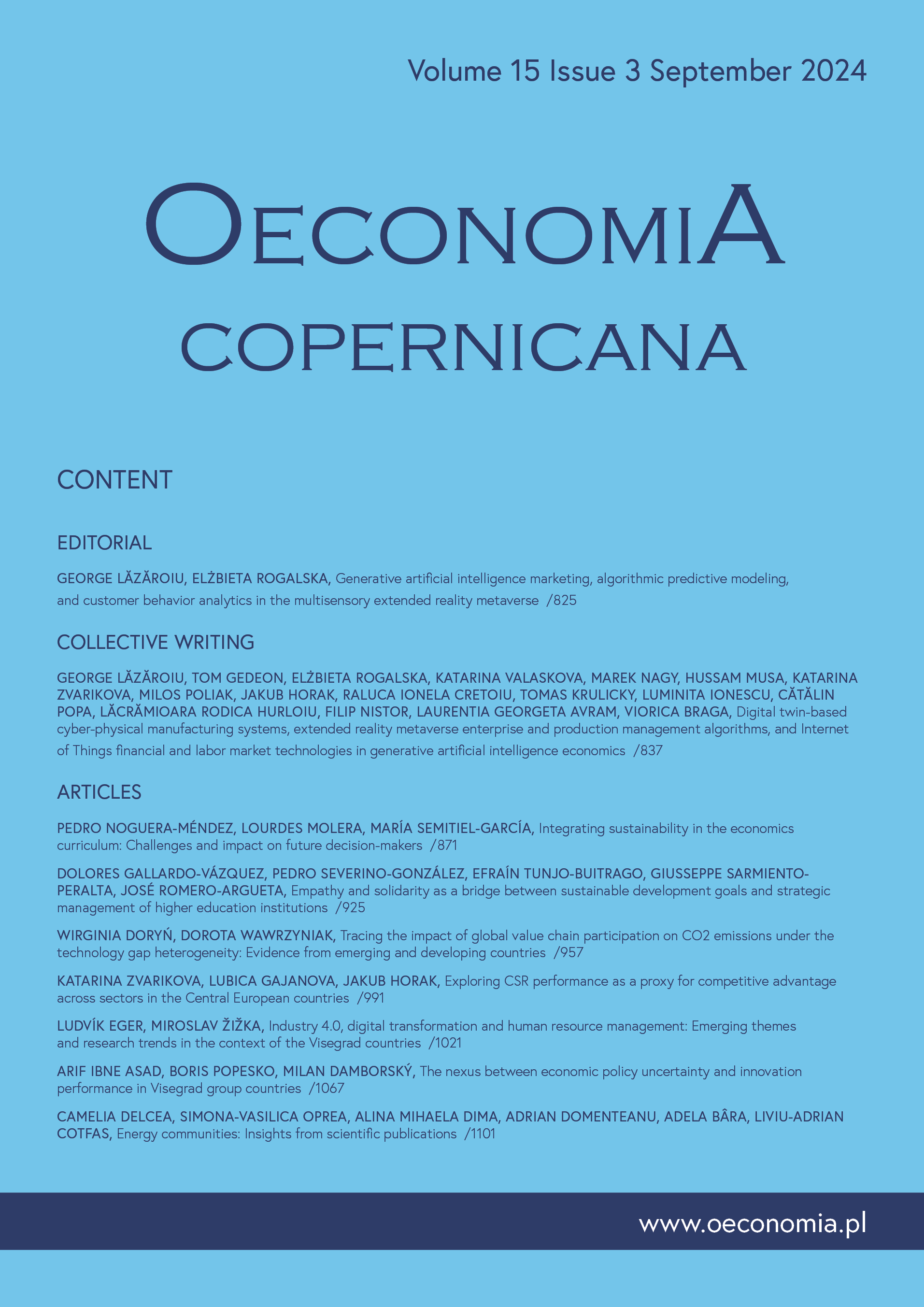Empathy and solidarity as a bridge between sustainable
development goals and strategic management of
higher education institutions
Empathy and solidarity as a bridge between sustainable
development goals and strategic management of
higher education institutions
Author(s): Dolores Gallardo-Vázquez, Pedro Severino-González, Efraín Tunjo-Buitrago, Giusseppe Sarmiento-Peralta, Jose Romero-ArguetaSubject(s): Energy and Environmental Studies, History of Education, Socio-Economic Research
Published by: Instytut Badań Gospodarczych
Keywords: university governance; higher education institutions (HEIs); social responsibility; empathy and solidarity; sustainable development;
Summary/Abstract: Research background: Globalization and environmental changes have driven greater com-plexity in the university governance system, leading to the modification of educational poli-cies, institutional strategies and higher education models in countries on various continents.Specifically, within Social Responsibility (SR) in higher education institutions (HEIs), andunder the commitment of university government, the challenges to achieve Sustainable De-velopment Goals (SGDs) guide universities’ strategic management. It involves various educa-tional actors through strategies linked to the substantive functions of universities.Purpose of the article: The objective of this study is to explain the influence of students’ per-ceptions on the social responsibility of the HEIs through empathy and solidarity from theperspective of SDGs in Colombia. For this, we link these two variables with the strategiesrelated to respect and dignity, freedom and citizenship, and environment using the referencepoint of the institutional challenges faced in university governance.Methods: This study considers the development of a structural analysis for the confirmationof research hypotheses. The research subjects are students from universities in Colombia, whomake up a non-probabilistic sample. A social responsibility perception scale composed ofdimensions and variables. The variables are expressed in statements whose response formconsiders a Likert-type scale.Findings & value added: The main contribution of the study lies in the value that studentsattach to empathy and solidarity, due to their connection with the values of SR and the princi-ples of the SDGs. The results show that students’ perceptions of social responsibility for HEIsfrom SDGs must drive the implementation of strategies based on empathy and solidarity. Thiswould respond to the demands linked with human dignity, relations with the milieu, spacegeneration, free expression of opinions, and fostering respect for others. Finally, it is importantto implement comprehensive strategies based on SR values and the principles of the SDGs.
Journal: Oeconomia Copernicana
- Issue Year: 15/2024
- Issue No: 3
- Page Range: 925-956
- Page Count: 32
- Language: English

